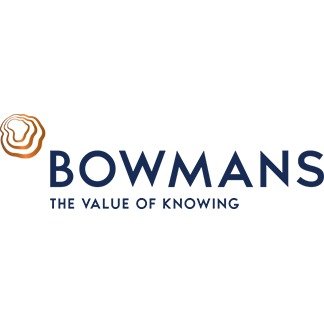Best Banking & Finance Lawyers in Cape Town
Share your needs with us, get contacted by law firms.
Free. Takes 2 min.
List of the best lawyers in Cape Town, South Africa
About Banking & Finance Law in Cape Town, South Africa
Banking & Finance law in Cape Town, South Africa, encompasses the complex landscape of financial institutions, legal regulations, compliance issues, and more. As a bustling economic hub, Cape Town is home to both local and international financial entities. It is supported by a robust legal framework designed to facilitate financial transactions while ensuring transparency and stability within the market. Understanding these laws is crucial for individuals and businesses operating within the financial sector, as they impact everything from personal loans to corporate finance and investments.
Why You May Need a Lawyer
There are numerous situations where legal assistance in banking and finance may become necessary. For individuals, seeking a lawyer might be crucial when disputing loan terms, handling foreclosure issues, or dealing with complex tax concerns. Businesses may need legal counsel for negotiating commercial loans, ensuring compliance with financial regulations, or managing mergers and acquisitions. High-stakes investments, asset management, and seeking recourse for financial wrongdoings also necessitate expert legal guidance to navigate the nuanced landscapes of banking and finance laws.
Local Laws Overview
South Africa's banking and finance sector is governed by a mix of local and national laws designed to protect consumers, promote fair practices, and ensure the integrity of the financial system. Key legislative acts include the National Credit Act, the Financial Intelligence Centre Act, among others, which aim to regulate credit agreements, combat financial crime, and protect personal and institutional data. Additionally, the South African Reserve Bank oversees monetary stability and the financial services sector, playing an integral role in maintaining economic stability. These laws ensure a fair balance between managing economic growth and consumer protection.
Frequently Asked Questions
What is the role of the South African Reserve Bank?
The South African Reserve Bank (SARB) is the central bank responsible for regulating the monetary and banking system in South Africa. It ensures financial stability, issues money, and governs monetary policy.
What does the National Credit Act regulate?
The National Credit Act (NCA) aims to promote a fair and non-discriminatory marketplace for access to consumer credit. It regulates credit providers, setting terms for lending and borrowing, and protecting consumers from over-indebtedness.
How does the Financial Intelligence Centre Act affect banking?
The Financial Intelligence Centre Act (FICA) aims to combat financial crimes such as money laundering and terrorist financing. It requires banks and financial institutions to verify the identity of clients and report suspicious transactions.
What should I consider before taking a loan?
Before taking a loan, it is essential to assess the terms and conditions, interest rates, repayment schedule, and overall affordability. Reviewing your credit score and comparing different offers can also provide better insight into managing potential financial obligations.
Can I renegotiate my loan terms with my bank?
Yes, it is possible to renegotiate loan terms with your bank. This process often involves discussions with your lender about modifying the payment plan, interest rates, or extending the repayment period to suit your current financial situation.
What are the legal options if I'm facing foreclosure?
If you're facing foreclosure, seeking legal advice can help you explore options such as restructuring the loan, engaging in negotiations with the lender, or contesting the foreclosure if grounds exist. Prompt legal intervention may provide avenues to prevent loss of property.
How are disputes with financial institutions handled?
Disputes with financial institutions are typically addressed through negotiation, mediation, or legal litigation. Consulting with a banking and finance lawyer can help in understanding the best course of action based on your situation.
How do I ensure compliance with banking regulations?
Ensuring compliance involves staying informed about the latest legal requirements, implementing robust audit controls, and consulting with legal experts to conduct regular compliance reviews tailored to your operations and transactions.
Are there specific protections for consumers in the banking sector?
Yes, consumers are protected by various laws, including the National Credit Act and the Consumer Protection Act, which ensure fair lending practices, disclosure obligations, and protection against abusive financial practices.
Why should I hire a lawyer for investment advice?
Hiring a lawyer for investment advice ensures informed decision-making by assessing legal implications, risk management, compliance issues, and potential disputes. A lawyer can provide a strategic perspective aligned with your financial interests.
Additional Resources
For those seeking further information, the following resources may be helpful:
- The South African Reserve Bank (SARB)
- Financial Sector Conduct Authority (FSCA)
- National Credit Regulator (NCR)
- South African Revenue Service (SARS)
- Banking Association of South Africa
Next Steps
If you require legal assistance in Banking & Finance, start by identifying the specific nature of your legal concern and gather any relevant documents. Contact a legal professional or firm specializing in banking and finance law in Cape Town. They will provide guidance tailored to your needs, offer analysis of your situation, and help navigate any regulatory or compliance challenges effectively. Considering initial consultations can also provide clarity on the way forward, ensuring that your legal and financial interests are proactively managed.
Lawzana helps you find the best lawyers and law firms in Cape Town through a curated and pre-screened list of qualified legal professionals. Our platform offers rankings and detailed profiles of attorneys and law firms, allowing you to compare based on practice areas, including Banking & Finance, experience, and client feedback.
Each profile includes a description of the firm's areas of practice, client reviews, team members and partners, year of establishment, spoken languages, office locations, contact information, social media presence, and any published articles or resources. Most firms on our platform speak English and are experienced in both local and international legal matters.
Get a quote from top-rated law firms in Cape Town, South Africa — quickly, securely, and without unnecessary hassle.
Disclaimer:
The information provided on this page is for general informational purposes only and does not constitute legal advice. While we strive to ensure the accuracy and relevance of the content, legal information may change over time, and interpretations of the law can vary. You should always consult with a qualified legal professional for advice specific to your situation.
We disclaim all liability for actions taken or not taken based on the content of this page. If you believe any information is incorrect or outdated, please contact us, and we will review and update it where appropriate.
Browse banking & finance law firms by service in Cape Town, South Africa
Cape Town, South Africa Attorneys in related practice areas.















